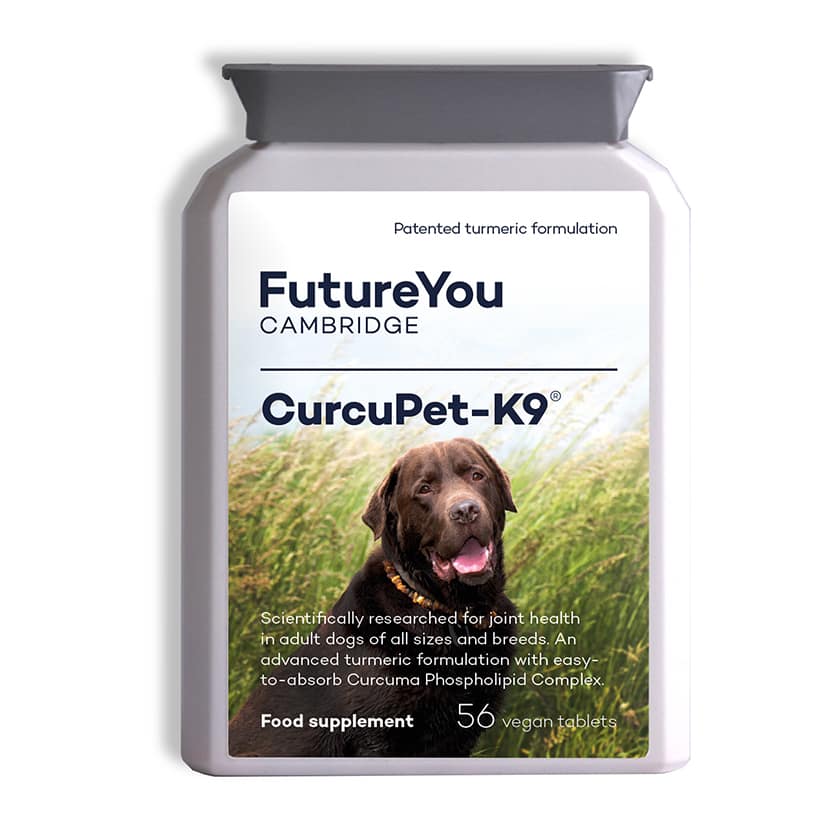Good Facts For Choosing Collagen For Dogs
Omega-3 Fatty Acids Can Aid Both Cats And Dogs With Their Joint Health.Omega-3 fatty oils, specifically EPA and DHA have a significant part in improving joint health of dogs as well as cats. The reasons why they're so beneficial:
Anti-Inflammatory Properties
Reduce Inflammation
Function: The omega-3 fat is a powerful anti-inflammatory effect. They reduce the production of proinflammatory substances like eicosanoids or cytokines that may cause inflammation.
Omega-3s can help reduce joint inflammation. They can help alleviate swelling and pain caused by arthritis. It can improve the quality of life for pets by increasing their mobility.
Joint Lubrication and Health
Better joint lubrication
Function: Omega-3 acids are essential to maintain the health of synovial fluid which is what lubricates joints.
Benefits: Better lubrication leads to smoother joints, less friction, and less wear on cartilage. This is especially beneficial for pets suffering from joint problems or who are who are at risk of developing them.
Cartilage Protection and Repair
Cartilage Protection:
Function: Omega-3s promote cartilage health by decreasing the activities of enzymes that cause destruction of cartilage.
Benefits of protecting cartilage It aids in maintaining joint strength by preventing the degradation and can slow the progression osteoarthritis.
Immune System Support
Immune System Regulation:
Function: Omega-3 acids modulate immune responses, creating an equilibrium in inflammation.
Benefits: A healthy immune system that is properly controlled will help in reducing joint pain. This can prevent over joint inflammation and damage.
Comfortable Mobility and Increased Comfort
Improved Mobility
Function: By decreasing joint inflammation and protecting joints, Omega-3s aid pets move more freely.
Benefits: Pets who are older as well as those suffering from arthritis tend to be more mobile and have less pain. This allows them to live a more healthy and active lifestyle.
Additional Health Benefits
Overall Health
Function: Omega-3 fat acids can also contribute to the health of your pet's skin, coat and cardiovascular system.
Benefits: A pet with better joint and bone health will likely be more active.
Tips for Use
Dosage and Administration proper dosage of Omega-3s depends on the pet's size and weight as well as specific health conditions. Follow the directions on the label or provided by your vet.
Omega-3 sources Fish oil supplements of high quality can be a great source of EPA, DHA and other omega-3s. To ensure the safety and effectiveness of your pet, it is essential to choose supplements specifically designed for pet use.
The side effects of Omega-3 supplements are generally safe, however, some pets might suffer from digestive issues or a fishy breath. To minimize side effects, start with a small dose and gradually increase the dosage.
We also have a conclusion.
Omega-3 fatty oils are beneficial to joints' health and wellbeing in dogs and cats. Their anti-inflammatory effects, capacity to enhance cartilage protection, joint lubrication characteristics and immune system support contribute to better joint function and less discomfort. Regular supplements lead to improved mobility and a more active, healthy lifestyle for your pet. Check out the best basics on probiotics for dogs for site recommendations including pet immune system supplements, pet bromelain supplements, natural cat supplements, pet astragalus supplements, pet passionflower supplements, pet cbd supplements, pet health supplements, pet brain supplements and more.

What Is The Most Effective Way To Treat Kidney Failure In Cats And Dogs With Omega-3 Fatty Acids?
Omega-3 fatty acids, specifically EPA (eicosapentaenoic acid) and DHA (docosahexaenoic acid), can help manage kidney disease in dogs and cats, by delivering numerous benefits to support overall health and kidney health. Here are a few ways that they can assist you in managing kidney disease:
Anti-inflammatory Properties
Reduce Inflammation
Function Omega-3 acids fight inflammation and lower the production of Eicosanoids, cytokines as well as other substances that cause inflammation.
Benefits: Omega-3s are capable of reducing the inflammation of the kidneys. This helps to stop the damage to the kidneys from getting worse and help improve the functioning of the kidneys.
Blood Pressure Regulation
Reduce Blood Pressure
Function: Omega-3 fatty acids help regulate blood pressure by improving the function of arteries and decreasing systemic inflammation.
Benefits Lower blood pressure may lower the stress on kidneys, assisting to slow the progress of kidney disease and ensure that the kidneys are functioning properly.
Proteinuria Reduction
Reducing Proteinuria:
Function: Omega-3s can aid in reducing loss of urine proteins (proteinuria) which is a common problem with kidney disease.
The reduction in proteinuria may help reduce further kidney damage.
Glomerular Filtration (GFR) A measure of the rate at which a glomerular filtrate is produced, is preserved.
Supporting Kidney Filtration
Function: Omega-3 acid is essential to maintaining the integrity of kidneys' glomerular filtering process.
Benefits: Maintaining a steady GFR is crucial for preserving kidney function as well as slowing down the progression of chronic kidney disease.
Appetit Stimulation and Nutritional Support
How to increase appetite
Omega-3s are able to boost appetite in animals suffering from kidney disease, which often experience a decreased appetite.
Benefits: A higher diet can help improve overall health and also help pets with kidney disease keep their weight in check and maintain muscle mass.
Cardiovascular Health
Helping Heart Health
Function: Omega-3 fats help improve cardiovascular health by reducing inflammation, decreasing blood pressure, and improving the lipid profile.
Benefits: A better cardiovascular system reduces the chance of complications, such kidney disease or heart failure. Additionally, it improves overall health.
Antioxidant Effects
Reducing Oxidative Stress:
Function: These fatty acids are antioxidants that reduce kidney damage caused by oxidative stress.
Benefits: Reduced the oxidative strain protects kidney cells from damage and encourages improved kidney function.
Utilization and Recommendations
Dosage: The dose of omega-3 fat acids is determined by the weight, size and requirements for health of your pet. It is important to adhere to the advice of your vet or the product's instructions. Omega-3s are often present in fish oil supplements formulated specifically for pet owners.
Omega-3 supplements for dogs are available in different forms. There are liquid oils and chews. Selecting a high-quality supplement is vital to ensure the safety and effectiveness.
Omega-3 supplements can trigger stomach upsets in some animals. To avoid any adverse negative effects, begin with a small amount and gradually increase the dosage. Checking for any adverse reactions, such as diarrhea or vomiting, is crucial.
Conclusion
Omega-3 fatty oils be beneficial in the management of kidney failure in dogs and cats. Their anti-inflammatory, blood pressure-lowering, proteinuria-reducing, and appetite-stimulating properties help support kidney function and overall health. Omega-3 supplements are known to reduce the rate of progression of kidney disease and improve quality of life and boost the health of animals suffering from renal failure. Take a look at the most popular pet wellbeing blog for site advice including pet rhodiola supplements, pet alfalfa supplements, pet pregnancy supplements, pet supplements for pets with fear of illness, nutritional supplements for dogs, pet supplements for pets with anxiety disorders, pet joint supplements, pet cbd supplements and more.

Oregano Oil Is A Remedy To Treat Yeast Infections In Dogs And Cats.
Oregano essential oils are utilized in certain situations to treat to treat yeast-related infections. It is a potent antimicrobial effects and can work well against fungal pathogens. How oregano helps with yeast infections:
Antifungal Properties
Active Compounds:
Oregano oils are rich in carvacrol (antimicrobial) and Thymol (antibacterial).
Benefits: These chemicals have been shown in studies to inhibit the growth of fungi, including Candida species which are responsible for yeast infection.
Antimicrobial Activity
Broad-Spectrum Action:
Oregano offers a wide range of antimicrobial capabilities against bacteria, fungi and many other pathogens.
Benefits: The capability to target fungal growth helps reduce yeast infection in both cats and dogs particularly around the ears and the skin.
Anti-inflammatory effects
Reduction of Inflammation
Function: Oregano oil has anti-inflammatory properties that help ease symptoms associated with yeast infections, including redness and itching.
Benefits by reducing swelling oregano may help soothe and heal irritated or inflamed skin tissue.
Support for Immune Function
Immune Modulation:
Oregano oils aid in the immune function of the body, by enhancing its natural defenses.
Benefits of strengthening immunity It will help fight yeast infections better and reduce the likelihood of recurrence.
Use and considerations
Topical Use: Mix the oregano oil in the carrier oil (such coconut oil or extra virgin olive oil) and apply it to the areas affected. The most common dilution rate for oregano is 1-2 drops per tablespoon of carrier oils.
Avoid Ingestion. Oregano oils are very concentrated. They shouldn't be fed to pets under the supervision of a veterinarian. In large quantities, they could be harmful.
Patch Test Before applying on large portions of the body, test a small patch area on your skin for adverse reactions.
Consultation with a Veterinarian: Always consult with a veterinarian before applying oregano oil to treat yeast infections in pets. They can provide suggestions on the correct dilution and application method as well as the possible dangers, based on the health concerns of your pet.
Conclusion
Oregano oils antimicrobial quality makes it a potential natural cure for yeast infections in dogs and cats. Its ability to fight fungal overgrowth, reduce inflammation, and improve immunity can aid in treating yeast infections efficiently. Make sure to use it under the supervision by a vet to ensure that your pet's health is secure and efficient. It is crucial to follow veterinary guidance when you use oregano in the complete treatment regimen for yeast infections in pets. Take a look at the top rated natural dog probiotics for more advice including pet sleep supplements, pet supplements for pets with fear of elevators and escalators, holistic pet care, organic pet supplements australia, pet supplements for pets with fear of music, pet supplements for pets with dry skin, pet supplements australia, dog vitamins and more.
